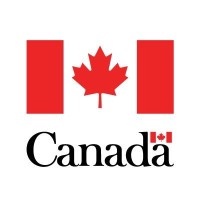
NRCAN — Mining Decarbonization Demonstration
At a glance
- Maximum amount : 5,000,000 $
- Minimum amount : 1,000,000 $
- Up to 50% of project cost
- Receipt of requests is now closed
- Mining, quarrying, and oil and gas extraction
- Canada
- Non-profit
- Public or Parapublic institution
- For-profit business
- All revenue ranges
- All organization sizes
- Indigenous Peoples
- Canadians
- Research
- Environment
- Economic, Social and Community Development
- Business Associations
- Diversity and Inclusion
- Indigenous peoples
- Rural / Remote communities
- Business owners / entrepreneurs
- Nonprofits / charities
- Academia / students
- Minority groups
- All structures
- Local
- Municipal
- Regional
- Provincial
- National
Overview
The Mining Decarbonization Demonstration Call provides up to $5,000,000 in funding to support demonstration projects aimed at reducing greenhouse gas emissions in the Canadian mining sector. Eligible activities include de-risking and accelerating the adoption of innovative technologies at Canadian upstream to midstream mining operations focusing on mobile equipment, stationary combustion sources, and energy efficiency improvements.
Activities funded
The Mining Decarbonization Demonstration Call funds projects that aim to test and implement innovative, low-carbon technologies for upstream to midstream operations in Canada's mining sector. Eligible projects focus on mitigating greenhouse gas emissions through advancements in mobile equipment, stationary combustion sources, and energy efficiency.
- Deployment of prototype hydrogen fuel cell powered haul trucks.
- Testing the integration of commercially available battery electric vehicles (EV) powered haul trucks within the mining lifecycle.
- Testing of electric or low-GHG emitting exploration equipment such as drills and exploration camps in operational environments.
- Replacing fossil-fueled stationary combustion sources with low- or non-GHG emitting alternatives for power generation and facility heating.
- Multi-site demonstration of portable battery packs to replace diesel generators at remote sites.
- Implementing AI driven systems to optimize energy use in mining operations, such as smart ventilation or ore sorting systems.
- Improvement of energy efficiency in ore processing and other electrified processes.
Eligibility
Eligibility for this grant is determined by specific requirements related to the applicant's profile and partner requirements.
- Applicants must be legal entities validly incorporated or registered in Canada.
- Eligible Canadian entities include for-profit and not-for-profit organizations, community groups, Canadian academic institutions, and various levels of government and their departments.
- Indigenous communities or governments, tribal councils, national or regional Indigenous councils, or Indigenous-controlled organizations are eligible.
- Applicants must either be owners or operators of mining, milling, and/or smelting assets in Canada, or technology solutions developers/providers. If classified as the latter, they must partner with an organization classified as the former.
- Project partnerships must be identified during the Expression of Interest phase with a Letter of Contribution required at the Full Project Proposal phase.
Who is eligible?
The Mining Decarbonization Demonstration Call in Canada is intended for various eligible Canadian entities that meet specific organization classifications and partnerships. These recipients need to align with the Call's objectives and contribute to the decarbonization initiatives in the mining sector.
- Legal entities validly incorporated or registered in Canada, including for-profit and not-for-profit organizations, community groups, and Canadian academic institutions, are eligible to apply.
- Provincial, territorial, regional, and municipal governments and their departments and agencies can also apply where applicable.
- Indigenous entities are eligible, including Indigenous communities or governments, Tribal Councils, National or regional Indigenous councils, or tribal organizations, as well as Indigenous organizations that are majority-owned and controlled by Indigenous people, whether for-profit or not-for-profit.
- Applicants must be either owners or operators of mining, milling, and/or smelting assets in Canada, or technology solutions developers or providers partnering with an asset owner/operator.
- Projects require collaboration with partners, which can include foreign entities, provided these partners are identified and contribute to the project's success.
Who is not eligible
This grant excludes certain companies and industries mainly involved in non-aligned activities. The restrictions ensure alignment with the decarbonization objectives of the mining sector.
- Companies operating in thermal coal or oil sands activities.
- Entities focused on remote sensing, land use change improvements, and negative emissions projects.
- Organizations developing decarbonization technologies like small modular reactors (SMRs) and carbon capture, utilization, and storage (CCUS).
- Projects already receiving funding from other NRCan programs may also be considered ineligible.
Eligible expenses
The grant covers specific expenses directly related to the implementation and success of the project.
- Salaries and benefits for employees on the payroll of the Recipient for the actual time spent by the employees on the project.
- Training and workshops.
- Professional, scientific, technical, and contracting services.
- Travel expenditures, including meals and accommodation, based on National Joint Council Rates, adjusted for costs in Northern and remote areas, where appropriate.
- Capital expenditures such as the purchase, installation, testing, and commissioning of qualifying equipment, materials, and products, including diagnostic and testing tools and instruments, and original equipment manufacturer equipment warranty (including extended warranties where deemed appropriate to mitigate risk and lack of capacity).
- Other expenses related to the project or activity including laboratory and field supplies, printing services and translation, data collection services, facility costs for rentals, construction insurance, accreditation, license fees and permits, honoraria, training, and field testing services.
- Overhead expenditures, directly related to conducting the project, up to 15% of Eligible Expenditures.
- GST, PST, or HST, net of any tax rebate to which the Recipient is entitled.
Eligible geographic areas
This grant opportunity is open to companies incorporated or registered in Canada. Eligibility is based on operational locations that ensure a substantial benefit to Canadian regions.
- Organizations based across all Canadian provinces and territories.
- Companies operating within Indigenous communities across Canada.
- Businesses conducting demonstration activities in remote areas not connected to the North American electrical grid.
Selection criteria
The evaluation and selection of projects for this grant focus on balancing innovation, collaboration, environmental impact, and alignment with strategic objectives to foster decarbonization in Canada’s mining sector.
- Adoption of innovative, low-carbon solutions in mining operations.
- Potential to significantly reduce greenhouse gas (GHG) emissions at the project level and potentially across the sector.
- Fostering of collaboration between technology developers and mining operators.
- Readiness level of technology (TRL 6-8) ensuring preparedness for demonstration in operational environments.
- Project partnerships and the strength of letters of contribution.
- Geographical consideration with demonstrated benefits to Canada.
- Inclusion of stakeholder participation, with reference to Indigenous and underrepresented groups, in planning and implementation.
- Scope and quality of proposed knowledge dissemination regarding project outcomes and insights.
- Potential to advance the commercialization of clean technologies to position Canada as a global leader in mining sector decarbonization.
How to apply
Determine Eligibility
- Review the Applicant Guide thoroughly to confirm your organization’s eligibility.
- Ensure your project aligns with the objectives and criteria specified.
Expression of Interest (EOI) Submission
- Complete the Expression of Interest (EOI) form via the Applicant Portal.
- Submit all required information by 1:00 p.m. ET on January 27, 2025.
EOI Evaluation
- Wait for NRCan to evaluate EOIs through the Technical Review and Investment Review Committees.
- Receive notification of EOI results in Spring 2025.
Full Project Proposal (FPP) Submission
- If invited, prepare a detailed Full Project Proposal (FPP).
- Submit your FPP by the specified deadline in Spring 2025.
FPP Evaluation
- NRCan evaluates FPPs through the same review committees.
- Receive project selection results in Summer 2025.
Due Diligence
- Undergo a due diligence assessment if selected.
- Fulfill all requirements, including financial, technical, legal, and regulatory, within two months.
Contribution Agreement
- Work with NRCan to draft and sign a contribution agreement.
- No funding obligation until the agreement is signed in Winter 2025/2026.
Additional information
Here are additional relevant details for this grant:
- The funding is non-repayable and intended for pre-commercial activities with benefits accruing broadly.
- Outcome reporting will be required for up to five years after project completion.
- There is a strong focus on knowledge dissemination, requiring applicants to produce and share knowledge products.
- There are provisions for in-kind contributions to be included in the overall project cost but not reimbursed.
- Final assessments will consider inclusion, diversity, equity, and accessibility (IDEA) impacts.
- Due diligence includes financial, technical, legal, and regulatory assessments.
- There is a maximum allowable overhead expenditure capped at 15% of eligible expenditures.
- Applicants must be prepared for NRCan to potentially share their proposals with other funding bodies for collaborative opportunities.
Contacts
Frequently Asked Questions about the NRCAN — Mining Decarbonization Demonstration Program
What is the NRCAN — Mining Decarbonization Demonstration?
How much funding can be received?
Who is eligible for the NRCAN — Mining Decarbonization Demonstration program?
What expenses are eligible under NRCAN — Mining Decarbonization Demonstration?
Who can I contact for more information about the NRCAN — Mining Decarbonization Demonstration?
Where is the NRCAN — Mining Decarbonization Demonstration available?
Is the NRCAN — Mining Decarbonization Demonstration a grant, loan, or tax credit?
More programs like this
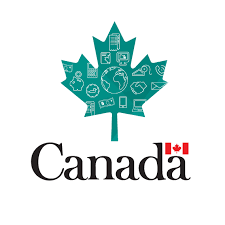
Clean Technology Manufacturing (CTM) Investment Tax Credit (ITC)
Canada Revenue Agency (CRA)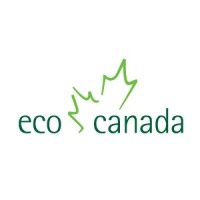
ECO Canada — Youth Employment in Natural Resources YNR
ECO Canada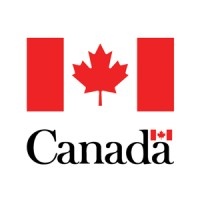
Indigenous and Stakeholder Capacity Fund - Regulatory Policy Dialogue
Canadian Nuclear Safety Commission (CNSC)
Critical Minerals Research, Development and Demonstration Program
National Research Council Canada (NRC)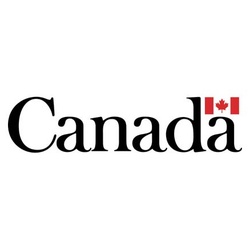
Critical Minerals Infrastructure Fund – Shovel ready Stream
Government of Canada
Critical Minerals Infrastructure Fund – Preconstruction Stream
Government of Canada
Tax incentives for mining and exploration
Canada Revenue Agency (CRA)
Net Zero Accelerator Initiative
Innovation, Science and Economic Development Canada (ISED)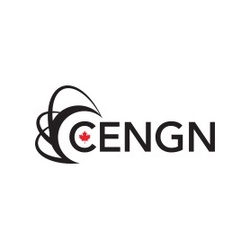
CENGN — Centre of Excellence in Next Generation Networks
Centre of Excellence in Next Generation Networks (CENGN)